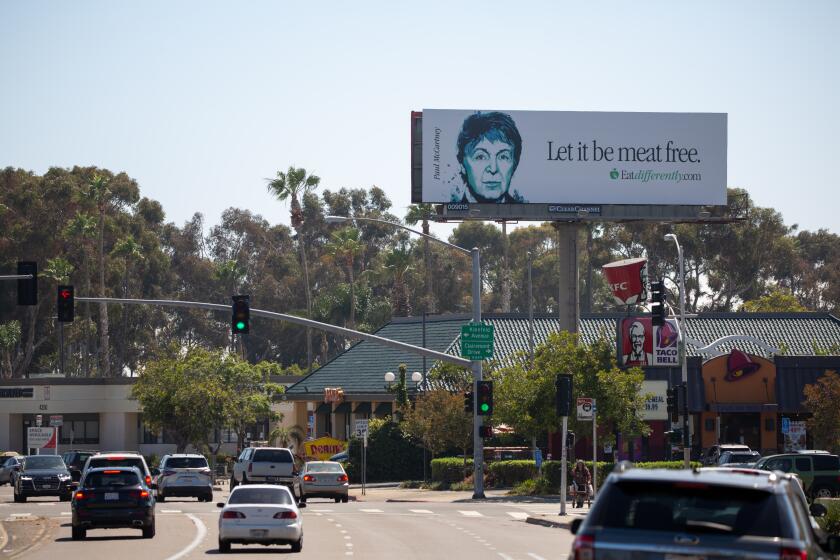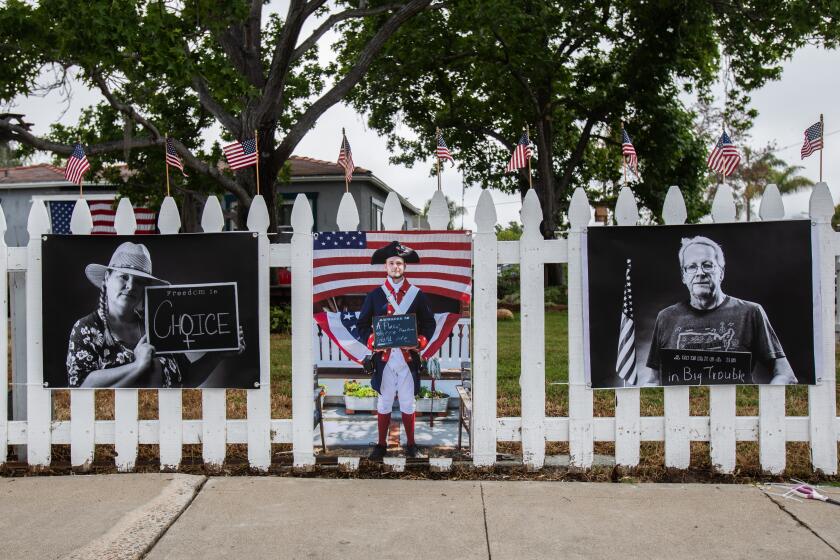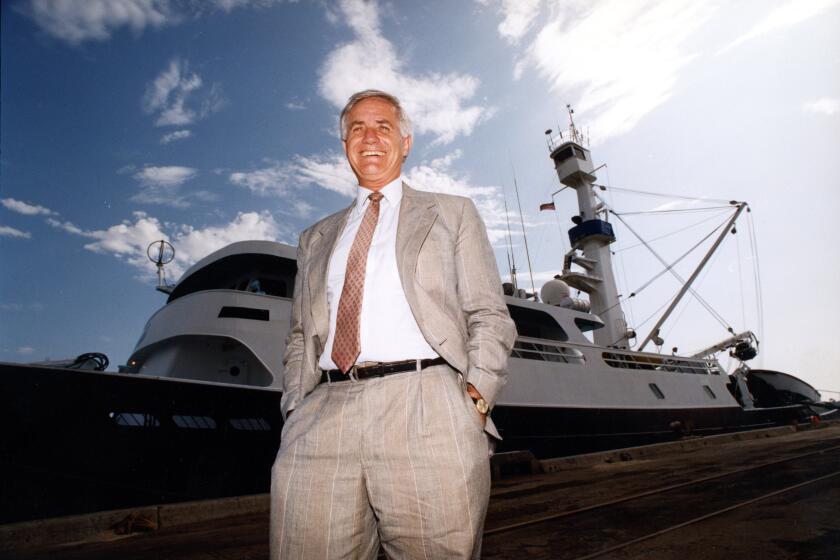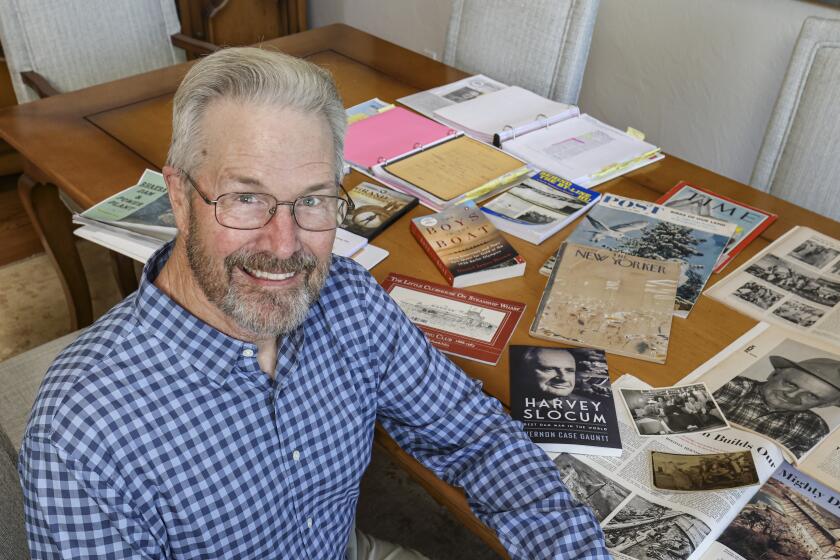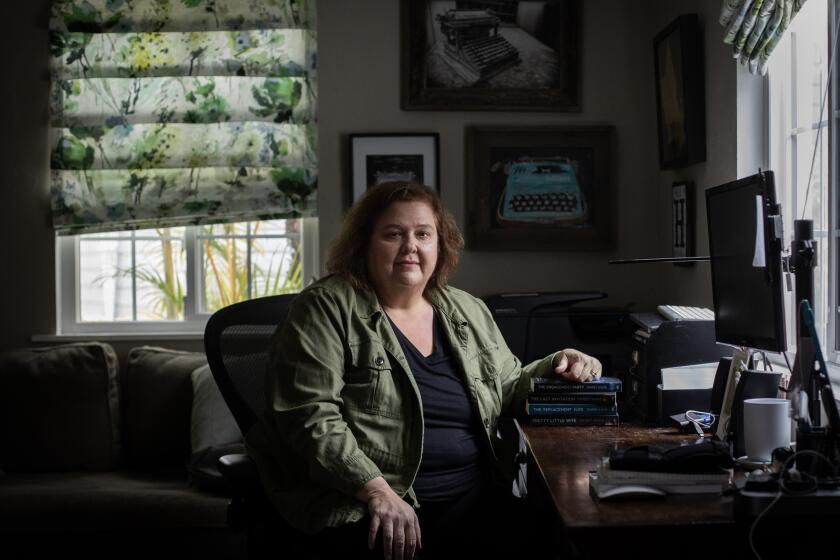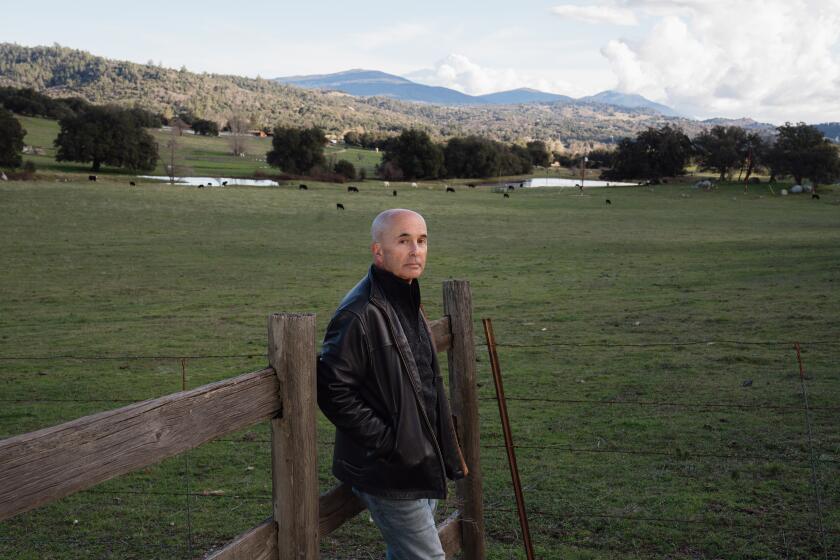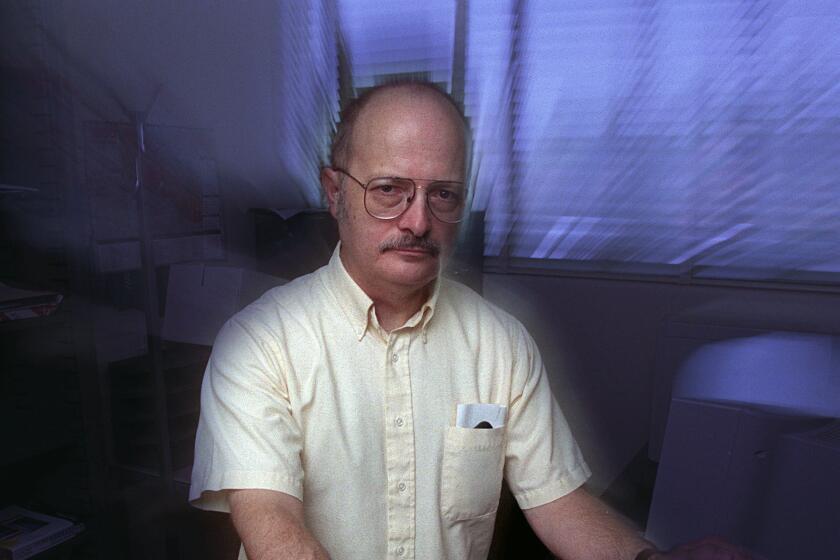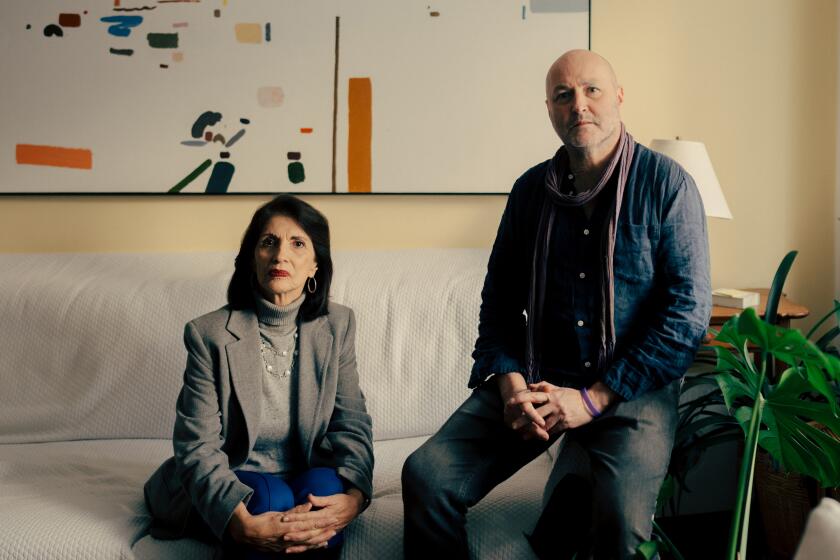Novelist Jennifer Weiner tells her own story in ‘Hungry Heart’
Jennifer Weiner is best known for her fiction, a dozen works (“Good in Bed,” “In Her Shoes,” “Who Do You Love”) that combined have spent more than five years on the New York Times bestseller list.
Now she’s written a memoir, “Hungry Heart,” that follows her from a childhood as an outsider to an adulthood as an “unlikely feminist enforcer,” in the words of The New Yorker. She’s campaigned on Twitter and elsewhere against gender discrimination in literary criticism, body shaming and other issues.
Weiner kicks off the 22nd annual San Diego Jewish Book Fair at 7 p.m. Thursday at the Lawrence Family Jewish Community Center in La Jolla. (The fair schedule features almost three-dozen writers over nine days.)
Q: Why did you write this memoir, and why now?
A: My publisher had been asking for a while to do a collection of some of the pieces I’d published in different places and I started putting that together, and then I was thinking about the things that people always ask at readings: “Where do you get your ideas? What was it like having a book made into a movie?” So I thought this would be a good place to answer some of those questions.
And then I started thinking, here I am, I’m 45 years old, sort of the halfway mark, hopefully, of my life, and I wanted to talk honestly about where I’d been and where I am and what it’s like here with the hope that maybe those stories are going to do some readers some good. Maybe they’re going to help them feel less alone, less invisible, less like they are the only one something has happened to.
Q: What part was the hardest for you to replay?
A: Wow. Probably writing about my father’s death was the hardest. I feel like there’s so much stigma around addiction and around mental illness and even just estrangement — just the idea that my dad left and didn’t see us for years and years and didn’t have any kind of relationship with us or even know what was going on. The more we talk about this stuff, the more we remove stigma. That’s my hope.
Q: Let me ask the flip-side — what part was the most fun for you?
A: Probably writing about going to Michigan as a kid, which I know maybe didn’t come across as the happier episodes. But just calling my sister while I was working on the book and asking, “Do you remember mom dragging us to visit people?” And Molly saying, “Yes, I do remember!” And then both of us going to our mother and having her say, “This never happened. I didn’t do that!”
For years, with my novels, my mom would say, “I’m just going to tell everyone it’s fiction. I’m just going to say you made it all up.” And with the new book, I’m like, “Good luck with that now.” And now her line is, “I’m going to tell everyone that memoir is a fiction of memory.” Whatever gets you through the night, Mom.
Q: Tell me about the title. It seems like there are several layers there.
A: It took so long to get this title. For a long time it was going to be called “The F Word,” for feminism and for fat and for the curse word. Then we were told Walmart would not carry the book if we called it that. This is how publishing decisions get made.
Then for a while it was going to be called “It’s All Material.” We were going to call it “Never Breastfeed in a Sweater Dress and Other Things I Learned the Hard Way.” We decided it can’t be too much about motherhood because then single people won’t want to read it. We can’t have it be too girly because then men won’t want to read it. It can’t be too this or too that.
I was listening to the radio and a Springsteen song came on, and it wasn’t “Hungry Heart,” but I was like, Hungry Heart! It’s perfect because it deals with appetite and yearning and love and the condition of always wanting something and never being satisfied.
It’s funny because Springsteen has his own memoir out now and I like telling people, “If you are going to buy one memoir with a Bruce Springsteen song in the title, you should probably buy ‘Born to Run.’ But if you are going to buy two….”
Q: How do you know when something is funny?
A: If it makes me smile. But then I have other people read it, or I’ll read it out loud. I’m very aware of the line between something mean and something funny and something that is acceptably funny and mean.
I think it comes from being one of four kids. We weren’t parented with this “aren’t you special, aren’t you wonderful, let me sit here and hang on your every word and tell you how brilliant you are.” Our parents were busy people, and if you weren’t amusing, they were on to the next kid because there were more where you came from. “You have 10 seconds to give us your A game.” So I think all four of us learned to be funny.
Q: There’s a line in your book that says, “Nobody’s ever once asked me whether I consider my novels political.” Do you?
A: Oh my god, it happened! Thank you! Yes, I do, because like I say in the book, I give fat women happy endings. It’s never been a great world to be a plus-sized woman, and I think it’s gotten worse. I think (Donald) Trump rallying people against political correctness has made the world safe for people who maybe would have kept their mouths shut to just say really hateful stuff.
So yes, I think my books are political. I think anything that sort of speaks to the human value of someone who doesn’t look like a supermodel — that’s political these days. Sad, but true.
Q: You open the book writing about how some books by female writers are unfairly dismissed by critics. Why was it important for you to speak out on that?
A: I think if you look at my history, I was someone who was brought up in a political, progressive, feminist household and brought up only a couple of generations away from the Holocaust. No one in my immediate family, but there were people I was related to who died in the camps. So we knew as kids how lucky we were to live in a country where you aren’t persecuted for your religious beliefs. You’re lucky to be safe, lucky to be healthy, lucky to grow up and theoretically be anything you want to be.
And if you got all that privilege, your job is to make sure everyone has it as good as you. Every Passover Seder, I heard my parents say, “No one is free until everyone is free and as long as there’s one person who is a slave, we’re all slaves.” I really believed that. I really believed that I had an obligation to speak up about stuff, whether it was all-male eating clubs at Princeton or abortion issues or, when I became a published author, the idea that there is still something really, really strange going on when The New York Times reviews mysteries and thrillers and science fiction and horror books and just won’t touch romance. I think that this is something I’ve done all my life: talk about whatever injustice I was seeing at the moment.
“Hungry Heart: Adventures in Life, Love, and Writing,” by Jennifer Weiner, Atria, 416 pages, $27
Get U-T Arts & Culture on Thursdays
A San Diego insider’s look at what talented artists are bringing to the stage, screen, galleries and more.
You may occasionally receive promotional content from the San Diego Union-Tribune.

